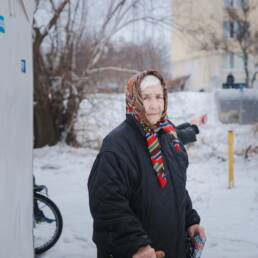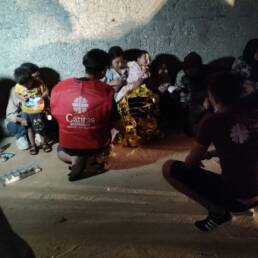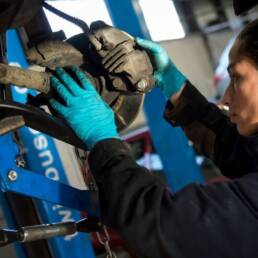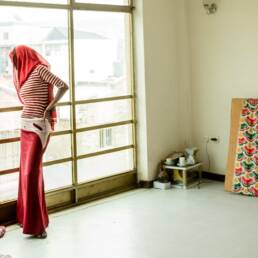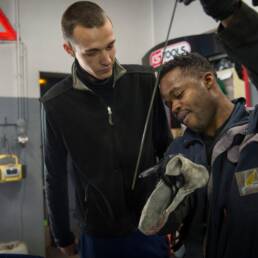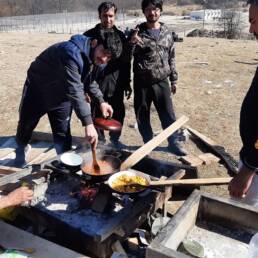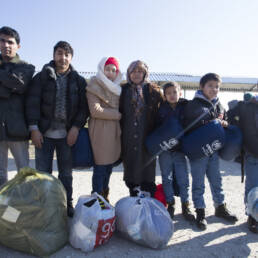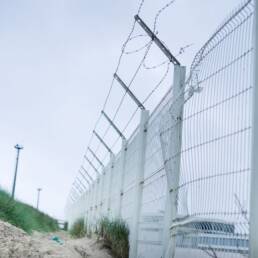More information
Leïla Bodeux
Policy and Advocacy Officer
Tel: +32 (0)2 235 26 55
lbodeux@caritas.eu
On this International Migrants Day, Caritas Europa calls on European leaders to invest in human rights-based migration policies instead of pursuing the illusion that blocking human mobility is possible and desirable.
The EU must make a U-turn to save lives and uphold democracy. Instead of sowing fear against migrants, we need a Europe that always stands up for human rights and thus welcome those in need for protection. This means fairer asylum policies, safe pathways like resettlement, humanitarian visas and family reunification. Without change, more lives will be lost at sea.”
Maria Nyman, Secretary General of Caritas Europa
This year, the International Migrants Day coincides with the finalisation of a major reform of the EU asylum system. We fear that the new EU Pact on Asylum and Migration will erode access to asylum in Europe and that the new flexible solidarity mechanism will not compensate for the increased responsibility falling on the already strained EU countries at the external border of the Union. As these countries are likely to use widespread detention and have poor reception conditions, the suffering of people will only increase. In addition, the new screening mechanism risks increasing and legitimising discriminatory racial profiling. Regrettably, the Pact perpetuates the objective to shift the EU’s asylum responsibility to non-EU countries, prevent arrivals and speed up return, exposing migrants to human rights violations.
At Caritas, we believe in a different approach. We would like to see decent reception conditions for people arriving in Europe instead of violence and pushbacks. We would like to see a welcoming Europe that brings people together and fosters social cohesion and inclusion instead of polarising societies. We would like to see solidarity instead of rejection and walls.
This starts with facilitating regular migration to Europe. Despite recent efforts from the EU institutions to facilitate labour migration, it remains incredibly complicated for migrants to safely and legally reach Europe to work, study or reunite with family members. This forces people to embark on dangerous journeys, and is at odds with the increasing labour force shortages plaguing most countries. For those who make it to Europe, undeclared work and exploitative conditions are often the sad reality that awaits them. Rampant exploitation and precarious working conditions in the agriculture sector as well as in the long-term care sector illustrate this reality.
We call on governments to expand labour migration policies to all skill levels, placing migrant workers’ rights and dignity at the centre.
We also expect EU lawmakers to facilitate smooth access to a secure work/residence permit and promote better treatment of migrant workers and break the dependency chain on their employers as they finalise the reform of the EU Single Permit Directive. Likewise, they need to pursue efforts in facilitating access to an EU Long-term Residence Permit that will ease integration and bolster migrants’ rights.
Serious and well-funded integration policies are also crucially needed to ensure proper participation in society and restore social cohesion. Language classes, decent housing and access to work through the facilitation of recognition of diplomas and skills are some of the prerequisites for lasting integration.
Finally, we need to drastically expand partnerships and tools that facilitate mobility from non-EU countries to the EU instead of considering them as bargaining chips to engage strategic countries of origin and transit in the fight against irregular migration. Mobility partnerships need to be transparent, provide decent working conditions and benefit the countries of origin and destination alike by preventing brain drain, for instance.
As the European Parliament elections are looming, with voting scheduled for June 2024, we need policies that pursue the strengthening of EU values and democracy to the benefit of everyone. Fear mongering should not be used as a convenient distraction from trying to curb the rising inequality and poverty in Europe. Our priority needs to be in investing in people-centred migration and integration policies that champion participation in society and social cohesion. This is about migrants. This is about all of us. It is a question of choice and vision for the future we want to live in.



